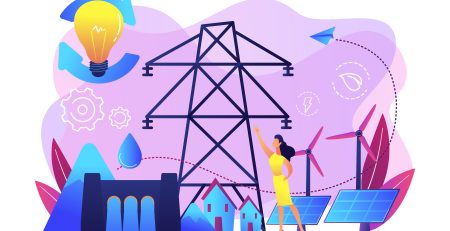Why Carbon Emissions are a Financial Time Bomb
Carbon emissions have long been identified as threatening our environment and health. However, their impact exceeds environmental concerns, posing a significant financial risk to economies, industries, and investors worldwide.
According to insurer Swiss Re., Climate change, which is one of the consequences of carbon emissions, is taking a financial toll on our planet, with extreme weather events costing the global economy $146 billion in 2019. However, economists warn that the worst is yet to come.
The Cost of Climate Change
one of the most direct financial implications of carbon emissions is the cost of climate change. As a result of global warming, extreme weather events like hurricanes, floods, and wildfires have become more frequent and severe. These events cause billions of dollars in damages yearly, straining government budgets, insurance companies, and businesses.
According to data from insurance company Munich Re, the global cost of natural disasters reached $210 billion in 2020. Due to the increasing frequency of extreme weather events, these costs are expected to rise, putting further pressure on already stretched financial resources.
Reasons Carbon Emissions Are Considered a Ticking Financial Time Bomb.
Here are some of the reasons carbon emissions are considered a ticking financial time bomb:
Physical Risk
Climate change, one of the main consequences of carbon emissions, has posed many physical risks, which are becoming evident. Changing weather patterns, extreme weather events, and rising sea levels can damage infrastructure, disrupt supply chains, and negatively impact agriculture.
- Infrastructure Damage: infrastructure assets such as roads, bridges, and buildings are at risk from extreme weather events. Repairing and replacing these assets can be costly, straining public budgets.
- Supply Chain Disruptions: Extreme weather events can disrupt industries that depend on international supply lines, resulting in lower income and more expenses.
Transition Risk
We must transition to a low-carbon economy to protect us from increasing natural disasters. However, companies relying solely on carbon-intensive activities may face significant financial challenges as the world transitions to a low-carbon economy.
- Stranded Assets: As a result of the shift to renewable energy, most energy firms may need to change their operations and procedures to become carbon neutral. Many fuel companies will have to change strategies to incorporate more renewable energy sources. More renewable energy sources mean less consumption of fossil fuels, leading to a decline in the company’s worth, which could result in a market sell-off.
- Regulatory Risks: Many governments worldwide are implementing stricter regulations and policies to reduce carbon emissions. Companies that fail to comply with these regulations may face fines, penalties, or even shutdowns.
Financial Market Risks
The financial markets are not immune from the risks posed by carbon emissions. Asset prices, investment strategies, and financial stability are all affected.
- Market Volatility: As climate change’s physical and regulatory risks become more evident, investors are beginning to reexamine the value of companies and industries heavily reliant on fossil fuels.
This reassessment may increase market volatility as investors reposition their portfolios to reduce exposure to carbon-intensive assets. It can also lead to a repricing of risk, with companies that fail to adapt to the low-carbon transition seeing their stock prices drop and their capital costs rise.
Regulatory and Legal Risks
Many regulatory and legal steps are taken to reduce carbon emissions by curbing fossil fuel consumption and promoting renewable energy. While these measures are essential for addressing climate change, they also introduce regulatory and legal risks for businesses operating in carbon-intensive industries.
Companies that fail to adapt to these changing regulations could face fines, lawsuits, or even be forced out of business. Shareholders are also becoming increasingly concerned about the financial risks associated with carbon emissions, leading to growing calls for companies to disclose their exposure to climate-related risks.
Opportunities in the Transition
While the financial risks associated with carbon emissions are substantial, they also present opportunities for forward-thinking investors and businesses. Significant investments in clean technologies, energy efficiency, and renewable energy will be necessary to make the shift to a low-carbon economy.
According to the International Renewable Energy Agency (IRENA), transitioning to a low- carbon economy could create up to 42 million jobs globally in 2050. This offers a great chance to boost the economy, create jobs, and allow investors to profit from the growth of the renewable energy market.
Conclusion
Carbon emissions are not just an environmental problem but a financial time bomb at the heart of the global economy. The costs of climate change, stranded assets, regulatory and legal risks, and market volatility pose significant financial risks to businesses, investors, and governments.
However, transitioning to a low-carbon economy also presents opportunities for those willing to adapt and innovate. Investing in renewable energy, energy efficiency, and other clean energy can mitigate the financial risks associated with carbon emissions and create a more sustainable and brighter future for all.
It is clear that the time to act is now. Governments, businesses, organizations, and investors must work together to accelerate the transition to a low-carbon economy and avoid the consequences of unchecked carbon emissions. The stakes are high, but the rewards of a sustainable future are worth the effort.










Leave a Reply